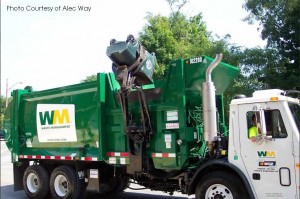
The US spends $8 billion of American’s tax dollars each year on recycling, accomplishing a whole lot of nothing.
Now I know what everybody is thinking, I’d have to be crazy to be against recycling, right? And that’s just what the big recycling bureaucrats and lobbyists want you to think.
Recycling is a phenomenon when it comes to social adoption and success, ever since its beginning as a serious movement in US history sometime in the late 80’s. More people recycle than vote, and recycling spans every race, gender, religion, and wealth class.
What about recycling has lead it to such success? Well none other than the average American who buys into the disinformation, and the recycling bureaucrats who perpetuates it.
The common arguments for recycling often are regarded as follows: makes people feel happy, saves energy, saves money, improves the environment, and concern over landfill space. One thing I cannot deny is that recycling makes people feel happy, and that’s what’s responsible for its viral success. However, this happiness is a result of the people’s misconceptions about recycling.
It’s simple to think about putting recyclables out on the street every week and that be the end of it, but what is often left out is the processes of transporting the recyclables from the home to various facilities, sorting, storing, and manufacturing them back to a usable state. All of these processes use energy, which is why it takes 70% more energy to recycle a plastic bottle, than to manufacture a new one, says the National Resources Defense Council.
These processes also cost money. If recycling saves money, then Americans wouldn’t be spending $8 billion a year, which results from the fact that recycling costs far more money than it saves. All of this money is hurting your local community or municipality who have to run the operation.
The cornerstone of the recycling movement is saving trees, but recycling does not do that. The vast majority of trees cleared for paper is grown on what are essentially tree farms. Trees are a renewable resource, so as long as we use paper there will be no shortage of trees.
Believe it or not, there are more trees today than one hundred years ago, according to the Food and Agriculture Association. Experts estimate that the amount of trees today, as opposed to 1920 is 380%, and that since the 1940 forest growth has exceed harvest by up to 42%. Not to mention that the manufacturing process of recycling paper requires chemical bleaches, and causes emissions from the process as well as all of the vehicular transport involved.
It’s a common misconception that America is one can away from being buried alive in its own garbage. This could not be more far removed from the truth. Modern landfills are a marvel of technology, which are put under heavy government regulations, with focuses on environmental protection.
They implement subterranean layers of clay and plastic to ensure no harmful chemicals enter ground water tables, and concerns about methane produced from active decomposition have been answered by ventilation systems that harvest methane to use on site.
Due to the cost of these advanced landfills there has been a shift from scattered dumps across the country to a mere 1,908 landfills nationwide, that are not raising the concern of space.
When all aspects of recycling, namely conservation of energy, money, environment, and landfill space are considered many concerns about the efficiency, cost, environmental impact and overall net good are raised which indicate that the cost far exceeds the benefit.
Reading this article gave me some insight on how recycling works. I’m positive that if more people were to read this article, they would see how recycling is not directly helping nature. But on the other hand recycling is helpful to the community because it gives jobs to citizens around the world, so its not all that bad. Maybe our recycling output will increase and must paper, plastic and other recyclable materials will keep getting recycled resulting in a decrease in new materials being made by companies. That’s just a thought and most likely a long shot, but ya never know.